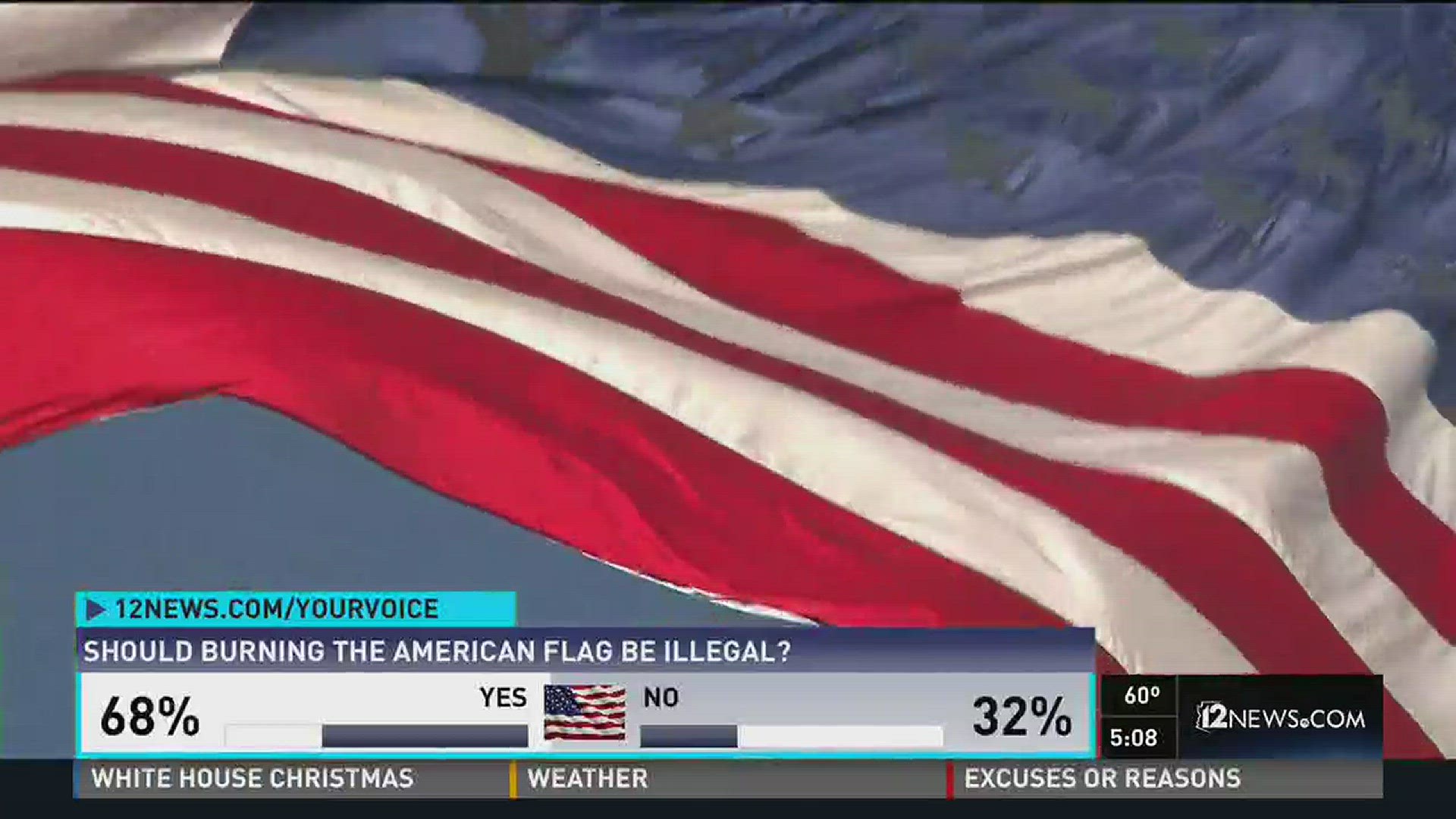President-elect Donald Trump’s recent tweet on flag burning is far from the first time that the legality of flag desecration has been brought up in the national conversation.
Individual states began passing flag-protection laws in the 1800s, with the first comprehensive federal law taking effect during the Vietnam Era.
However, flag burning has been protected under the First Amendment since a pair of Supreme Court rulings in 1989 and 1990.
The late Justice Antonin Scalia, who Trump will get to replace next year, sided with liberal justices in holding that the Constitution protects flag burning. The first case dealt with a Texas protester; the second struck down a law passed by Congress. Both cases were approved 5-4.
Scalia cited his vote on numerous occasions over the year as evidence that he did not always decide cases based on his personal views. "If it were up to me, I would put in jail every sandal-wearing, scruffy-bearded weirdo who burns the American flag," he said. "But I am not king."
Still, attempts have been made to draft bills that would meet with the Supreme Court's approval. In 2005, with flag burners protesting the Iraq War, the Flag Protection Act of 2005 would have criminalized burning flags if the primary intent was "to incite or produce imminent violence or a breach of the peace.”
RELATED: Trump, McCain agree on flag burning
Who backed such a bill? Funny story, one of the co-sponsors was New York Senator Hillary Clinton. The proposed penalty was ... wait for it ... up to a year in prison, and up to a $100,000 fine. The bill was introduced, but never passed.
Most of the people on Trump's list of 21 potential high court nominees would agree with Scalia, according to Jeffrey Rosen, president of the nonpartisan National Constitution Center. The flag-burning decisions, he says, are "entrenched as part of our First Amendment tradition."
What's more, only Justice Samuel Alito among current justices has been willing to restrict free speech considered by many to be abhorrent, such as protests at a Marine veteran's funeral and videos that depict the mutilating animals.
By contrast, Chief Justice John Roberts wrote the 8-1 decisions upholding those forms of speech in 2010 and 2011. And he cited the court's past protection of flag burning in controversial 5-4 rulings that upheld the right to spend freely on political campaigns.
"If the First Amendment protects flag burning, funeral protests and Nazi parades — despite the profound offense such spectacles cause — it surely protects political campaign speech despite popular opposition," Roberts wrote in McCutcheon v. FEC, a 2014 case that struck down aggregate limits on campaign contributions.
And Justice Anthony Kennedy, the most frequent swing vote on the court, voted with the majority in the 1989 case despite having been nominated by President Ronald Reagan the year before. "It is poignant but fundamental that the flag protects those who hold it in contempt," Kennedy wrote in a separate concurrence.
That's apparently not the way Trump's inner circle sees it. His spokesman, Jason Miller, called flag burning "completely ridiculous" and "completely despicable" in a contentious interview on CNN Tuesday.
And Trump may have at least one powerful ally if he's serious about trying to make burning the flag illegal. His nominee for attorney general, Sen. Jeff Sessions, supported the Senate's 2006 effort to recommend a constitutional amendment to the states.
But the president-elect would face the wrath of civil liberties groups on the right as well as the left. said Alliance for Justice President Nan Aron: “Trump is flirting here with a vision of a dark and totalitarian America, which should be a terrifying prospect for all Americans.”
Contributing: David Jackson

